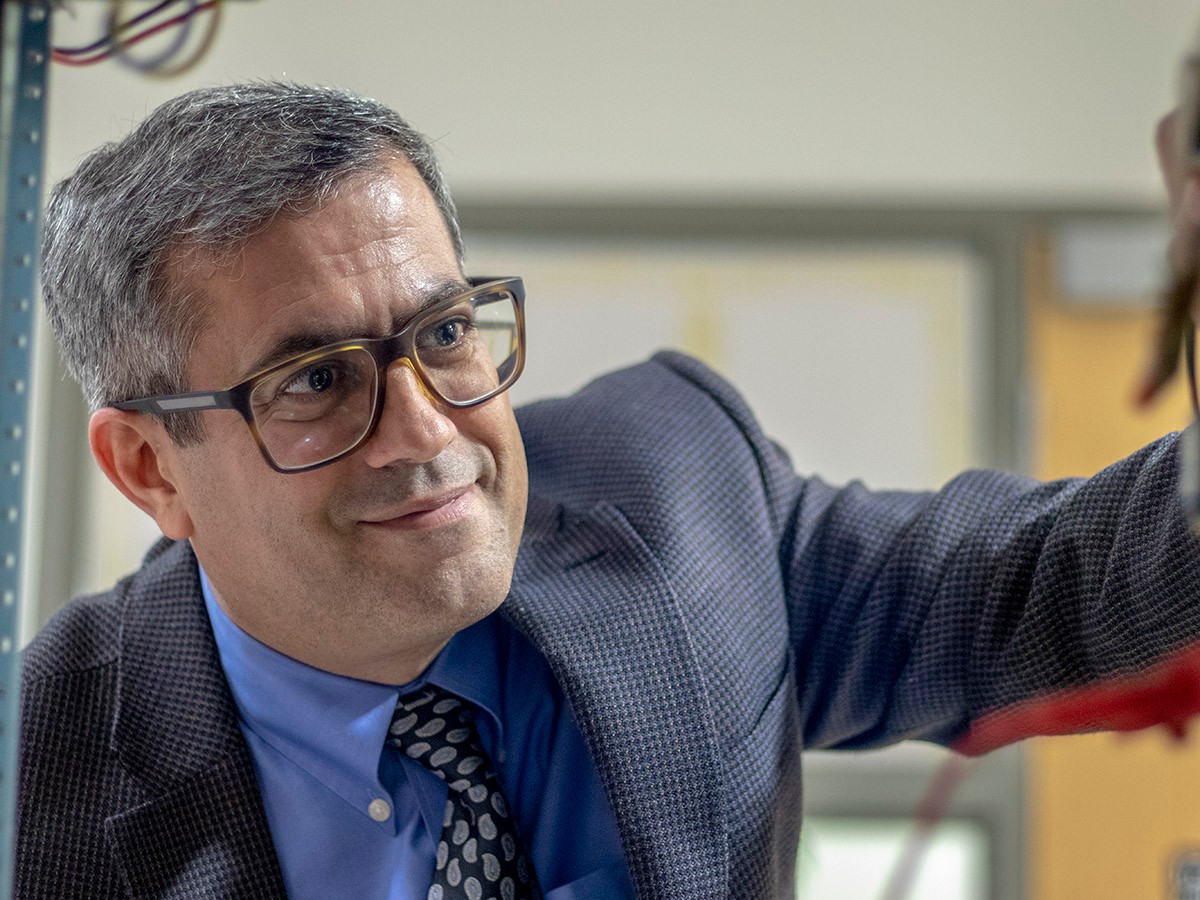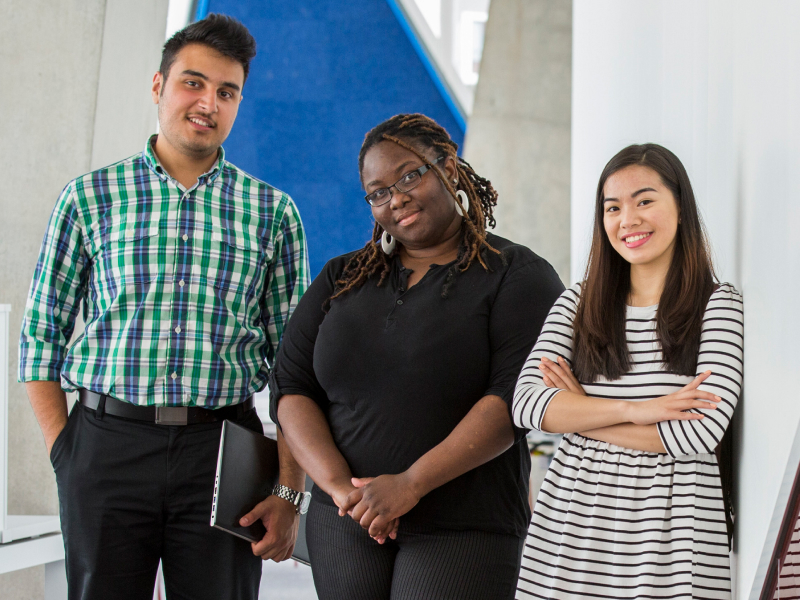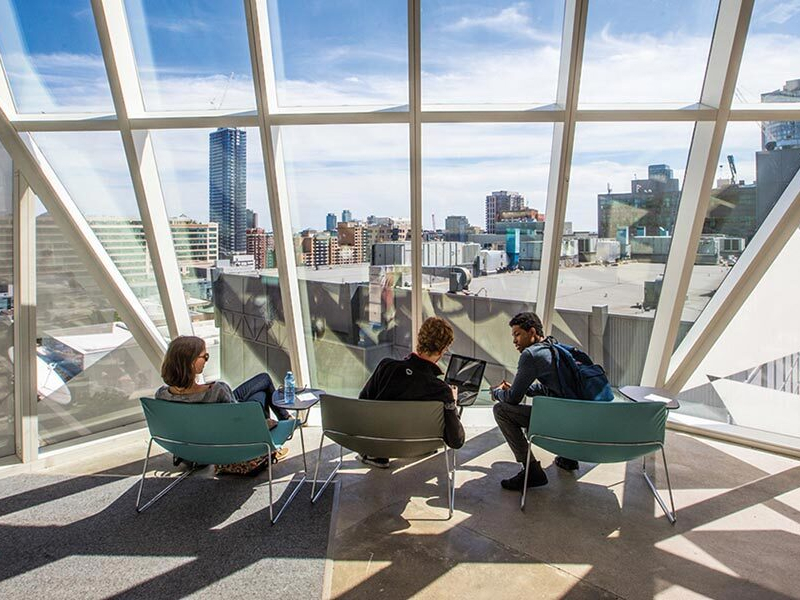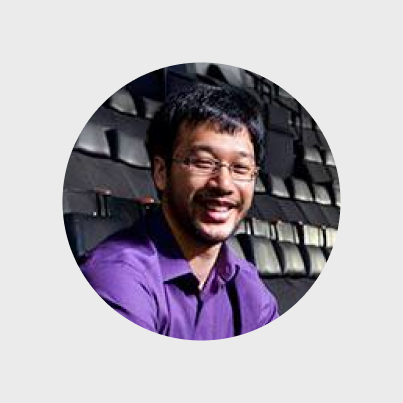Computer Engineering Undergraduate Degree Program
FEAS > Programs > Undergraduate > Computer Engineering
What makes this program different?
With a combined and specialized skill-set in computer architecture, hardware manufacturing, cloud computing, AI, and more — computer engineering students learn to design intricate circuits, code new programs, and build computers and computing devices, driving our industries and communities into the digital future.
Degree
Bachelor of Engineering (BEng)
Department
Electrical, Computer, and Biomedical Engineering
Accreditation
Canadian Engineering Accreditation Board (external link, opens in new window)
Options
FT 4yrs, Co-op 5 yrs, optional specializations
Paid experience with industry partners
Students learn at the forefront of technology learning from top-tier professors, gaining hands-on experience alongside industry leaders, building their professional brand and getting paid while they do it,
Learn more about the paid co-op program and the computer undergraduate internship.
State-of-the art facilities
Students can explore their own passions, contribute to revolutionary research, and practice classroom theories in our cutting-edge labs and facilities.
Learn about our labs.
#1 in Ontario for dedicated & personalized student support
The First-Year Engineering Office (FYEO) caters to all first year academic and administrative needs, ensuring a successful transition from high school student to thriving future engineer! First year students also benefit from first year intervention and transition programs that help students maintain and upgrade their academic standing.
Funding for your studies & business ideasExplore scholarships, awards, income opportunities, and financial assistance options to finance your studies. |

Explore your journey
The co-operative (co-op) & internship program offers engineering students 8, 12 & 16 months of paid, full-time on-the-job experience, to develop skills, build professional connections and gain confidence in their chosen discipline.
The Optional Specialization in Management Sciences (OSMS) focuses on engineering and operations management, operations research, finance and organizational behaviour and prepares students for engineering leadership.
The Accelerated Masters of Applied Science Pathway helps research-minded students, who have a minimum CGPA of A-, earn a Master of Applied Sciences up to one year earlier.
A Professional Engineer (P.Eng) License (external link) is a professional designation for engineering graduates through Professional Engineers Ontario (PEO). Graduates can choose to pursue this license, subject to PEO requirements, because our program is accredited.
The first year transition program is designed to help students who may be struggling with the pace of university learning, have missed credits, or need to improve their academic standing. This program ensures that students have the tools and guidance they need to succeed and remain on track in their studies.
In the first and second years, students learn engineering fundamentals, like calculus, physics, and electric circuit analysis, digital circuits, and basic electronic circuits.
In the third and fourth years, you will gain specialized knowledge in designing and building computers, developing firmware, and building networks with stability and security at the forefront of thought. Through coursework and hands-on experience in our popular co-operative internship program, you'll gain the skills needed to build future computing devices, digital technology systems, and advanced IT platforms. Full course descriptions are available on the undergraduate calendar.

It is nearly impossible to find an aspect of our lives not touched by computer engineers. Due to the advancements in computer engineering, Artificial Intelligence (AI) is promising more than ever to make systems run better and smarter. Enroll in a program boasting a solid curriculum in the early years, a great variety of elective specialized courses in the fourth year, well-equipped software and hardware labs, student clubs, and an optional co-op/internship program, and equip yourself with highly transferable technical, analytica, and soft skill in this dynamic area of engineering.

Get involved!
Engineering students deepen their applied knowledge of electrical engineering and meet new people by participating in design teams, competitions and student groups, including:
- Engineers Without Borders (EWB) (external link)
- EngOut (external link)
- IEEE Computer Society TMU Chapter
- National Society of Black Engineers (external link)
- TMU Formula Racing (external link)
- TMU Thrill Club (external link)
- Women in Engineering (WiE) (external link)
Selected Competitions

Get help!
Program-specific, career development, personal counselling and more, TMU is #1 in Ontario for providing support throughout your student journey.

Clusters & zones
Students and faculty tackle real-world problems through our four zones and six centres by joining forces with leading organizations, from industry and hospitals to community and government. Our students receive one-on-one mentorship from multidisciplinary experts, and use state-of-the-art technologies that ignite and nurture their start-ups from the ground up.

What does a computer engineering graduate do?
Career possibilities
Unlike computer science graduates, computer engineering students focus on designing hardware and manufacturing computers. Our computer engineering graduates become leaders in this crucial field because they’ve gained hands-on practical experience building computers and they’ve acquired immersive knowledge rooted in interdisciplinary theory on how to design interfaces.
Our graduates carve out traditional and emerging roles specializing in cybersecurity, data science, game programming, machine learning and much more.

Raymond Phan
Senior Computer Vision Research Scientist, Electronic Arts (EA)
"Today, I work in artificial reality, building systems and developing algorithms to reconstruct environments for human interactions.”
Computer Engineering (BEng) ʼ06, (MASc) ʼ08, (PhD) ʼ13
Possible employers:
TMU computer engineering graduates work for a variety of leading companies, in various roles including:
- AMD
- Apple
- Electronic Arts
- IBM
- Intel
- Siemens Canada
- Telus
- + More
$10M for entrance scholarships
We offer more than $10M in academic-based entrance scholarships.
$25k for current students
We also offer more than $25k in computer engineering awards. Look for one of our eight awards on the university’s scholarships and awards platform. (external link)
Earn income & develop career-related skills
Undergraduate research assistantships are available for third year students with a CGPA of 3.0 or more.
The Career Boost program provides jobs to eligible full-time undergraduate students.
Get financial assistance
Get info on government financial aid programs such as OSAP, out-of-province student loans, and U.S. student loans.








